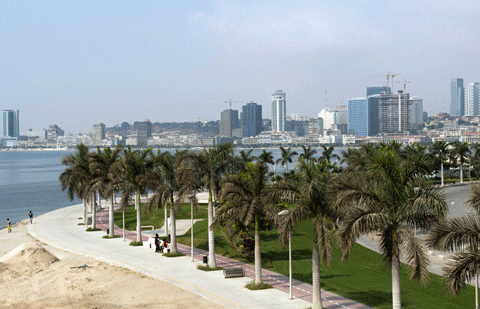EU should work with China on Africa
Updated: 2014-05-10 09:44
By Anna Katharina Stahl (China Daily)
Comments Print Mail Large Medium SmallSo, the EU should accord priority to steering its economic cooperation with Africa toward mutual benefit. Instead of looking at Africa as a recipient of aid, the EU should interact with Africa as an economic partner. The declaration at the recent EU-Africa summit is a step in the right direction, and highlights the fact that the two continents' economies are closely linked and that both sides should make efforts to help each other to grow. The establishment of the EU-African Business Forum, which takes place on the sidelines of the EU-Africa summit, has proven to be an effective tool.
The EU also needs to put greater emphasis on Africa as a "strategic player" in international relations and, therefore, support the role of the AU Commission in multilateral negotiations, such as the post-2015 development agenda.
Apart from readjusting its relationship with Africa, the EU should also reach out to China. Since China-Africa relations are expanding, EU policymakers can no longer ignore China's presence in Africa. So, instead of trying to reduce China's influence in the region, the EU should enter into a dialogue with China on Africa.
The recent visit of Chinese President Xi Jinping to Brussels and the adoption of a joint EU-China statement calling for the deepening the EU-China Comprehensive Strategic Partnership could represent a starting point for exploring synergies between the EU's and China's policies on Africa. And since Africa's complex security challenges require common Sino-European responses, EU policymakers should explore new diplomatic tools that are better suited to the changing global order. Through so-called trilateral cooperation, Africa, the EU and China could jointly develop new solutions to foster sustainable economic development and security in Africa.
In short, the rise of China-Africa relations should help the EU to reconsider its role in the global arena and revise its foreign policy. While a growing engagement with its African and Chinese partners is necessary, this alone will not guarantee that the EU will continue to play an important international role. Only if the EU is willing to replace its traditional unilateral foreign policy by a reciprocal partnership with Africa and China can it remain a relevant international player.
The author is senior associate researcher at the Institute for European Studies and the Brussels Institute of Contemporary China Studies of the Vrije Universiteit Brussel.







